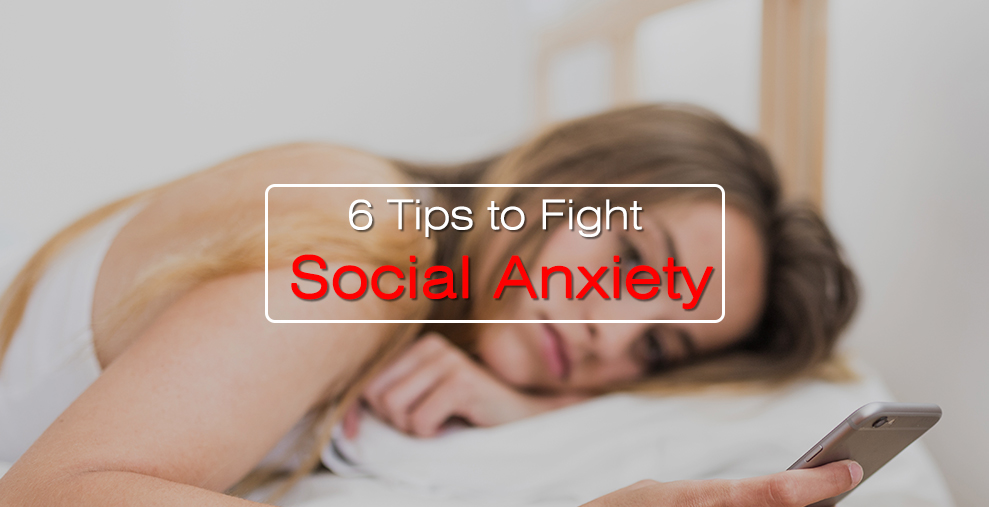Everyone gets nervous in certain social situations. But if you have social anxiety disorder, everyday events can be extra challenging. You might feel a lot more self-conscious and scared than other people do in social interactions.
But don’t let fear keep you from living life to the fullest. Try these six tips to help you feel better and get through the day.
1. BREATHE

Breathe
Your body is powerful. Learning the warning signs of when your anxiety flares up is important to help you take action; for some, this could be your body feeling tense and your mind feeling chaotic. Your body and especially your lungs can help. Simply take few breathe. Breathing exercises can help you control your anxiety. Having a steady breath has a direct impact on your heart rate and, in turn, your thoughts. Your heart will slow down as your breath does and as your breathing and your heart rate slow down your mind and thoughts will too.
2. SHIFT YOUR ATTENTION

Shift your attention
Anxiety has a way of grabbing your attention and turning it inward upon yourself, making you not only self-critical but suddenly noticing how your heartbeat has rapidly increased without your permission, meanwhile, you then suddenly feel yourself getting hotter, red in the face… sweaty… it feels like a domino effect that cannot be interrupted. But instead, try and focus your attention on what it is you may be doing, so if you are speaking to someone try and pay close attention to what they are saying rather than worrying about what the right thing is to say next.
3. STOP TRYING TO BE PERFECT

Stop trying to be perfect
It’s easy to forget that no one is perfect when we live in a world that aspires to achieve perfection. It’s also easy to forget that not everyone will like us nor does everyone need to. Ask yourself do YOU like everyone (slim chances)? It’s also often forgotten that it’s okay to make mistakes as it makes us human.
4. THINKING ISN’T REALITY

Thinking isn’t reality
As much as it feels like anxiety controls you, anxiety isn’t reality and you control your own reality. It’s important to remember that social anxiety feeds on thoughts that emphasise danger and negativity. Symptoms such as a fast heartbeat and sweating emerge from this kind of thinking. Luckily thinking is a habit and can, of course, be changed. The cure isn’t just positive thinking but realistic thinking. Try and examine your anxious thoughts such as ‘I am going to say something stupid’ they are often exaggerations of reality. Then try and produce thoughts that criticise and correct them.
5. START SMALL

Start small
Don’t jump into big social situations. Schedule restaurant meals with friends or family members so you can get used to eating in public. Try going out of your way to make eye contact with people on the street or at the grocery store and say hello. If someone starts a conversation with you, ask them questions about their hobbies or favorite places to travel.
6. TALK BACK TO NEGATIVE THOUGHTS

Negative thoughts
These thoughts might be about people or situations, and they may even be automatic. Most of the time, they’re wrong. But they can cause you to misread things like facial expressions. This could lead you to assume people are thinking things about you that they aren’t.
